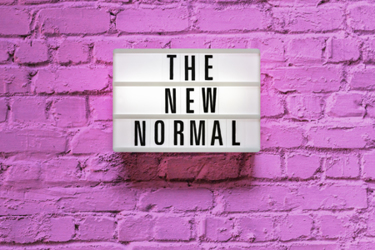Will 2023 Bring A New (Stable) Normal To Outsourcing?

By Louis Garguilo, Chief Editor, Outsourced Pharma

My discussion on the future of outsourcing, with Sara McCutchan, cofounder and Director, Regulatory Affairs and Quality, Aristea Therapeutics, was delayed a few weeks. The company had just dosed its first patient in one of its three ongoing clinical trials, and McCutchan needed to focus.
Aristea is an immunology-focused drug development company advancing novel therapies to treat inflammatory diseases, and the dosing was in a Phase 2a trial evaluating a compound for the treatment of hidradenitis suppurativa (HS), a chronic and progressive inflammatory dermatological condition.

She then adds triumphantly, “Since we last spoke [for these editorials in 2020], we have hired a dedicated head of CMC. He and I work together closely on CDMO management.”
McCutchan came to our delayed discussion with not only news, but a wide range of intriguing thoughts on the future of outsourcing that match the breadth of her responsibilities.
We’ll focus here on two overriding themes, and readers can look for some of her other thoughts in subsequent editorials.
Stability As You Go
“Drug sponsors are looking for stability,” she says to kick off our conversation.
“As I was thinking about this topic, I considered what we have experienced the last couple of years. What have we learned? How do we harness those lessons looking forward? There were many challenges during the COVID pandemic, but a common theme emerged in our CDMO relationships — the need for stability. We encountered it ourselves at Aristea, and I’m sure many others have as well. There’s a lot that goes into that theme.”
Starting with, McCutchan explains, a shortage of resources. Whether that’s equipment, excipients, packaging materials, or employees, “it seemed everyone was experiencing shortages of some kind.”
Looking ahead, she says, both drug sponsors and CDMOs will aim to achieve a robust supply chain — during any conceivable contingency — and consider involving, for example, more and varied suppliers and robust risk-based contingency planning. The goal is to provide increased confidence there won’t be a gap anywhere in the supply chain, and clinical studies can be supplied with an investigational product without delay.
Before the pandemic, startup drug development companies may have thought they didn’t need to have multiple suppliers. Not anymore. McCutchan believes all sponsors and CDMOs will give this area more thought and effort.
“On the CDMO side,” she says, “we’ll likely see an increased interest in diversifying suppliers to ensure supply chains aren’t interrupted. This is what I mean by stability — CDMOs confidently meeting production timelines and delivering a high-quality product and clinical studies starting when they’re meant to — with the ultimate goal of delivering new treatment options to patients.”
McCutchan also wants her partners to provide a high level of confidence regarding risk assessments. She’s looking for collaboration between sponsor and CDMO to detect, identify, and understand product or process-specific risks.
“This is about evaluating the risks to specific programs or manufacturing campaigns early in development, and working together with the CDMO to manage and continuously assess those risks,” she explains.
That risk-management element plays a major role in improving outsourcing stability — particularly in the face of a pandemic. “You want to create a comprehensive supply chain relationship with your manufacturers.”
Mix, Match, Improve
McCutchan cites ongoing vendor oversight as a challenge to working with a global supply chain.
Traditionally, sponsors visited and audited CDMOs on a regular schedule no matter where they were located, but COVID nixed that from continuing. CDMOs then got “very creative” with virtual audits and video tours to assure clients that facilities were operating properly and maintaining quality.
“I was involved in several virtual audits of CDMOs during the pandemic and was impressed with the level of acquired technical sophistication, so to speak, that our CDMOs brought to the table,” she says.
Of course, she adds, some virtual audits were better than others, but for the most part these provided “a comprehensive remote experience.”
Looking forward to the future, she believes virtual audits will continue in 2023 (and beyond) to some degree – for the most part because they do alleviate resource and cost pressures that appear to be increasing.
Nonetheless, she says, “There will be an uptick to in-person interactions again.” You cannot replace being present at the CDMO’s facilities, speaking face-to-face with the team working on your project, or just getting a general sense of the environment.
As we look into the great beyond, she believes a balance will evolve between in-person and virtual interactions, whether that’s for audits, kickoff meetings, or general team collaboration. Rather than traveling twice a year, perhaps companies will opt for half on-site and half virtual.
“Again, I was personally impressed — and pleasantly surprised — at the quality of those virtual interactions with CDMOs during the pandemic,” she adds. “But now we need to rebalance.”
Concludes McCutchan: “Most of my musings here came from thinking about our need for stability brought into focus by the pandemic and how we can strike a balance in our planning, operations, and strategy utilizing a fully outsourced supply chain.
“Stability and balance are critical in developing a new equilibrium with vendors across the drug development spectrum, and that means getting to a future where there’s a new normal to feel stable within.”
